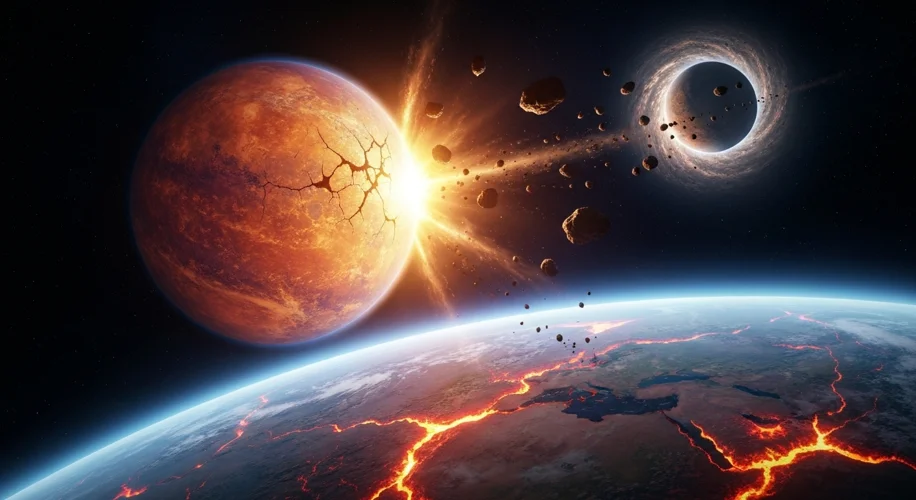Did you know that the very existence of life on Earth might be thanks to a colossal cosmic accident? For decades, scientists have pondered the origins of life, and new research is pointing to a truly cataclysmic event in our planet’s early history.
We’re talking about the giant-impact hypothesis, which suggests that a Mars-sized protoplanet, often called Theia, collided with the early Earth. This wasn’t just a fender-bender; it was a world-altering impact that likely vaporized much of our planet’s surface and ejected a massive amount of debris into orbit. Over time, this debris coalesced, forming our Moon.
While this sounds like a devastating event, it might have been the key ingredient for life as we know it. Here’s why:
- The Right Stuff: The impact is thought to have delivered crucial volatile elements, like water and carbon, to Earth. Before this event, our planet might have been much drier. The sheer energy of the collision could have melted the early Earth’s mantle, creating conditions where these life-essential elements could be retained and mixed in.
- A Stabilizing Force: The Moon’s formation is intrinsically linked to this impact. Our Moon plays a vital role in stabilizing Earth’s axial tilt. Without the Moon, Earth’s tilt would likely wobble much more dramatically over long periods. This stability is crucial for maintaining relatively consistent seasons and climate patterns, creating a more predictable environment for life to emerge and evolve.
- Reshaping the Surface: The impact also significantly reshaped Earth’s surface, potentially creating varied environments and geological processes that were conducive to the emergence of life. The intense heat and subsequent cooling cycles could have set the stage for complex chemistry.
As someone with a background in atmospheric and environmental science, I’m always fascinated by how seemingly destructive events can lay the groundwork for something incredible. Understanding these deep-time planetary processes isn’t just about satisfying scientific curiosity; it helps us appreciate the delicate balance that allows life to flourish.
It’s humbling to think that the very ground beneath our feet and the air we breathe might be the legacy of a cosmic crash billions of years ago. This perspective reminds us of the interconnectedness of planetary systems and perhaps, in a way, encourages us to be better stewards of this unique and precious world we call home.

